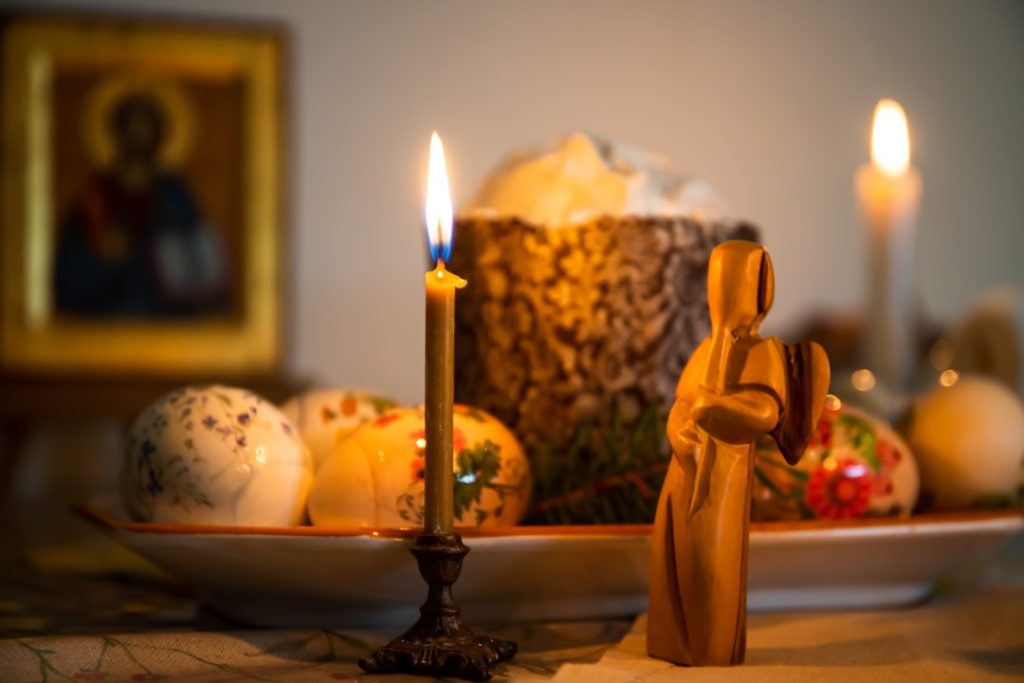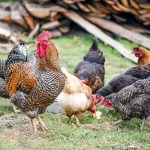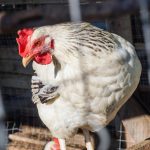Chickens have specific requirements for cold weather survival. Understanding these needs is essential for maintaining the health and welfare of a flock during winter. While chickens are generally resilient, they remain susceptible to cold-related issues.
As temperatures decrease, chickens need additional care to stay warm and healthy. They are at risk of cold stress, frostbite, and other cold-related health problems. Chickens cannot regulate their body temperature as effectively as mammals, relying on their environment and human care for warmth.
Winter can also lead to decreased egg production in chickens. Providing appropriate care is crucial for their comfort and health during this season. A dry, draft-free environment is vital for chickens in cold weather.
They also require access to fresh water and adequate nutrition to maintain their health and energy levels. Regular monitoring of their behavior and physical condition is important to ensure they are adapting well to the cold. Understanding and meeting these specific cold weather needs allows chicken owners to provide the necessary care and support for their flock’s health and comfort throughout winter.
Table of Contents
- 1 Providing proper shelter and insulation for your chickens
- 2 Ensuring access to fresh water and proper nutrition
- 3 Implementing heating solutions for extreme cold temperatures
- 4 Protecting chickens from frostbite and other cold-related health issues
- 5 Monitoring and adjusting care routines based on weather conditions
- 6 Preparing for extreme weather events and emergencies
- 7 FAQs
- 7.1 What are the best ways to keep chickens from freezing in the winter?
- 7.2 How can I insulate my chicken coop to keep the chickens warm in winter?
- 7.3 What bedding materials are best for keeping chickens warm in winter?
- 7.4 How can I prevent my chickens’ water from freezing in the winter?
- 7.5 Is it safe to use heat lamps or heaters in the chicken coop during winter?
- 7.6 What are some signs that my chickens are too cold in the winter?
Key Takeaways
- Chickens need extra care in cold weather to stay healthy and comfortable
- Proper shelter and insulation are essential for protecting chickens from the cold
- Access to fresh water and proper nutrition is crucial for chickens’ well-being in cold weather
- Heating solutions may be necessary for extreme cold temperatures
- Frostbite and other cold-related health issues can be prevented with proper care and attention
- Regular monitoring and adjustment of care routines based on weather conditions is important
- Being prepared for extreme weather events and emergencies is essential for the safety of chickens
Providing proper shelter and insulation for your chickens
Coop Ventilation and Insulation
The coop should be well-ventilated to prevent moisture buildup, but it should also be draft-free to protect the chickens from cold drafts. Insulating the coop can help maintain a comfortable temperature inside, especially during extreme cold temperatures.
Bedding and Cleaning
Adding extra bedding such as straw or wood shavings can provide additional insulation and warmth for the chickens. It’s important to regularly clean and replace bedding to keep the coop dry and comfortable for the chickens.
Outdoor Area and Run
In addition to the coop, providing a covered outdoor area or run can give chickens the opportunity to stretch their legs and get some fresh air without being exposed to harsh weather conditions. This outdoor area should also be well-insulated and protected from drafts to ensure the chickens can safely spend time outside.
By providing proper shelter and insulation, you can create a comfortable and safe environment for your chickens to thrive in during the winter months.
Ensuring access to fresh water and proper nutrition

Access to fresh water and proper nutrition is crucial for chickens to stay healthy during cold weather. Chickens need a constant supply of clean, unfrozen water to stay hydrated and maintain their overall health. In cold temperatures, water sources can freeze quickly, so it’s important to regularly check and replace water to ensure the chickens have access to fresh water at all times.
Using heated waterers or adding warm water to the waterers can help prevent freezing and ensure the chickens have access to water throughout the day. Proper nutrition is also essential for chickens to stay healthy during cold weather. Providing a balanced diet that includes high-quality feed, grains, and supplements can help support their immune system and energy levels.
Additionally, offering occasional treats such as fruits and vegetables can provide extra nutrients and help keep the chickens entertained during the winter months. By ensuring access to fresh water and proper nutrition, you can help your chickens stay healthy and hydrated throughout the winter.
Implementing heating solutions for extreme cold temperatures
In extreme cold temperatures, it may be necessary to implement heating solutions to keep the chickens warm and comfortable. While chickens are generally able to tolerate cold temperatures, extreme cold can pose a risk to their health and well-being. Adding heat lamps or radiant heaters to the coop can help maintain a comfortable temperature inside, especially during freezing temperatures.
It’s important to position heating sources carefully to prevent fire hazards and ensure they are securely installed to prevent any accidents. Another heating solution is using heated perches or pads that provide warmth for the chickens while roosting. These heated perches or pads can help prevent frostbite on their feet and keep them warm during the night.
It’s important to regularly check heating sources for any malfunctions or hazards and ensure they are functioning properly to keep the chickens warm and safe during extreme cold temperatures.
Frostbite is a common concern for chickens in cold weather, especially on their combs, wattles, feet, and legs. To protect chickens from frostbite, it’s important to regularly inspect them for any signs of frostbite and take preventive measures to keep them warm and dry. Applying petroleum jelly or other protective ointments on their combs and wattles can help prevent frostbite by creating a barrier against the cold.
Additionally, providing proper shelter, insulation, and heating solutions can help minimize the risk of frostbite and other cold-related health issues. In addition to frostbite, chickens may also experience respiratory issues in cold weather due to poor ventilation or high humidity levels in the coop. It’s important to ensure proper ventilation in the coop while also protecting the chickens from drafts to maintain a healthy environment for them.
Regularly cleaning the coop, removing moisture buildup, and providing good air circulation can help prevent respiratory issues and other cold-related health issues in chickens.
Monitoring and adjusting care routines based on weather conditions

Weather Monitoring for Chicken Care
Monitoring the weather conditions and adjusting care routines accordingly is essential for ensuring the well-being of your chickens during cold weather. Keeping an eye on temperature changes, wind chill, and precipitation can help you anticipate any potential risks or challenges for your flock.
Proactive Measures for Extreme Weather
When extreme weather conditions are forecasted, it’s important to take proactive measures such as adding extra insulation, providing additional bedding, or implementing heating solutions to keep the chickens warm and comfortable.
Monitoring Chicken Behavior and Health
Adjusting care routines based on weather conditions also includes monitoring the behavior and physical condition of the chickens regularly. Observing their activity levels, appetite, and overall well-being can help you assess if they are coping well with the cold weather or if they require any additional care or support.
Adapting Care Routines for a Healthy Flock
By staying attentive to weather conditions and the needs of your flock, you can adapt your care routines accordingly to ensure they stay healthy and comfortable throughout the winter months.
Preparing for extreme weather events and emergencies
Preparing for extreme weather events and emergencies is crucial for ensuring the safety of your chickens during cold weather. It’s important to have a plan in place for potential power outages, severe storms, or other emergencies that may impact the well-being of your flock. Stocking up on extra feed, water, bedding, and other supplies can help you be prepared for any unexpected disruptions in your routine care for the chickens.
Additionally, having a backup heating source such as a generator or alternative heating methods can provide a safety net in case of power outages or extreme cold temperatures. It’s also important to have a plan for relocating the chickens to a warmer or safer location if necessary, such as a garage or barn, in case their regular coop becomes uninhabitable due to extreme weather conditions. By preparing for extreme weather events and emergencies, you can ensure that your chickens have the necessary support and care to stay safe and healthy during challenging weather conditions.
Having a plan in place and being proactive in your preparations can help minimize any potential risks or disruptions for your flock during cold weather.
If you’re looking for tips on how to keep chickens from freezing in the winter, you might also be interested in learning about the benefits of an A-frame chicken coop. This type of coop can provide better insulation for your chickens during the colder months, helping to keep them warm and comfortable. Check out this article for more information on how an A-frame chicken coop can benefit your flock.
FAQs
What are the best ways to keep chickens from freezing in the winter?
To keep chickens from freezing in the winter, it’s important to provide them with a well-insulated coop, plenty of bedding, and access to fresh water that doesn’t freeze. Additionally, providing supplemental heat and ensuring good ventilation can also help keep chickens warm.
How can I insulate my chicken coop to keep the chickens warm in winter?
Insulating a chicken coop can be done by using materials such as straw, hay, or wood shavings for bedding, sealing any drafts, and adding insulation to the walls and ceiling. It’s important to ensure that the coop is well-ventilated while still being insulated to prevent moisture buildup.
What bedding materials are best for keeping chickens warm in winter?
Bedding materials such as straw, hay, and wood shavings are all good options for keeping chickens warm in winter. These materials provide insulation and help to keep the coop dry and comfortable for the chickens.
How can I prevent my chickens’ water from freezing in the winter?
To prevent chickens’ water from freezing in the winter, you can use heated waterers, add a small amount of apple cider vinegar to the water to lower its freezing point, or manually change the water multiple times a day to ensure it doesn’t freeze.
Is it safe to use heat lamps or heaters in the chicken coop during winter?
While heat lamps or heaters can be used in the chicken coop during winter, it’s important to use them with caution to prevent fire hazards and ensure the safety of the chickens. It’s also important to provide proper ventilation to prevent moisture buildup.
What are some signs that my chickens are too cold in the winter?
Signs that chickens may be too cold in the winter include huddling together for warmth, decreased egg production, lethargy, and shivering. It’s important to monitor the chickens closely and make adjustments to their environment as needed to keep them comfortable.
Meet Walter, the feathered-friend fanatic of Florida! Nestled in the sunshine state, Walter struts through life with his feathered companions, clucking his way to happiness. With a coop that’s fancier than a five-star hotel, he’s the Don Juan of the chicken world. When he’s not teaching his hens to do the cha-cha, you’ll find him in a heated debate with his prized rooster, Sir Clucks-a-Lot. Walter’s poultry passion is no yolk; he’s the sunny-side-up guy you never knew you needed in your flock of friends!







